Key Features
- Price: 239.99 USD
- ATX Form Factor
- Intel Z390 chipset
- LGA 1151 CPU socket
- Compatible with 8th and 9th Gen. Intel CPUs
- 4 x 16GB 4,266 MHz DDR4, maximum 64GB
- 3 x PCI-E 3.0 x16, 3 x PCI-E 3.0 X1
- IO : PS2 connector, 3 x USB 3.1 2nd gen. Type-A, 2 x USB 3.1 2nd Gen Type-C, 4x USB 2.0, 3 x USB 3.1 (1st Gen), 1 x Gigabit Ethernet, 1 x HDMI (1.4b), 1 x DisplayPort (1.2), 5 x audio, 1 x optical S/PDIF, 1x WiFi MU-MIMO 802.11 AC.
- 2 x M.2 SSD (Optane ready), 6 x SATA 3
- 2x SLI, 3x CrossFire support
The ROG Strix Series is a gamer and builder dreams. It aims at delivering rock solid performances, enthusiastic options, and keep its pricing within reason. Not always an easy juggle.
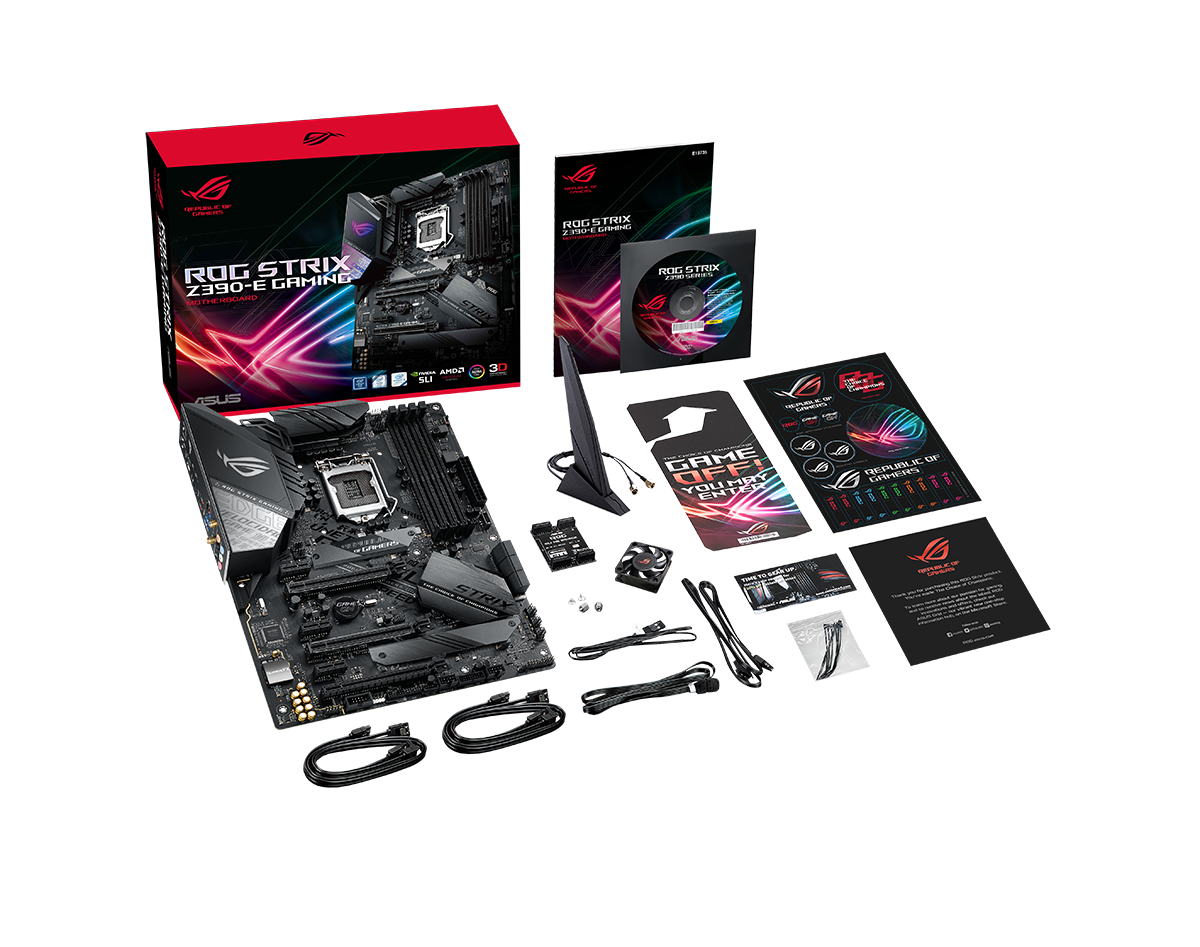
Other than the board itself, in the box you will find :
- 4 SATA cables
- RGB extension cables
- WiFi antenna
- M.2 SSD screw and screw raisers
- Door sign and stickers
- Zip ties
- VRM Fan and Fan Bracket
- Q connector
- SLI HB Bridge
- Driver DVD
- Documentation and coupon
The ROG STRIX Z390-E
First and foremost, it is an ATX motherboard which will fit virtually any case you throw at it. Nothing new there. Note that there is no PCB back shield on this board.
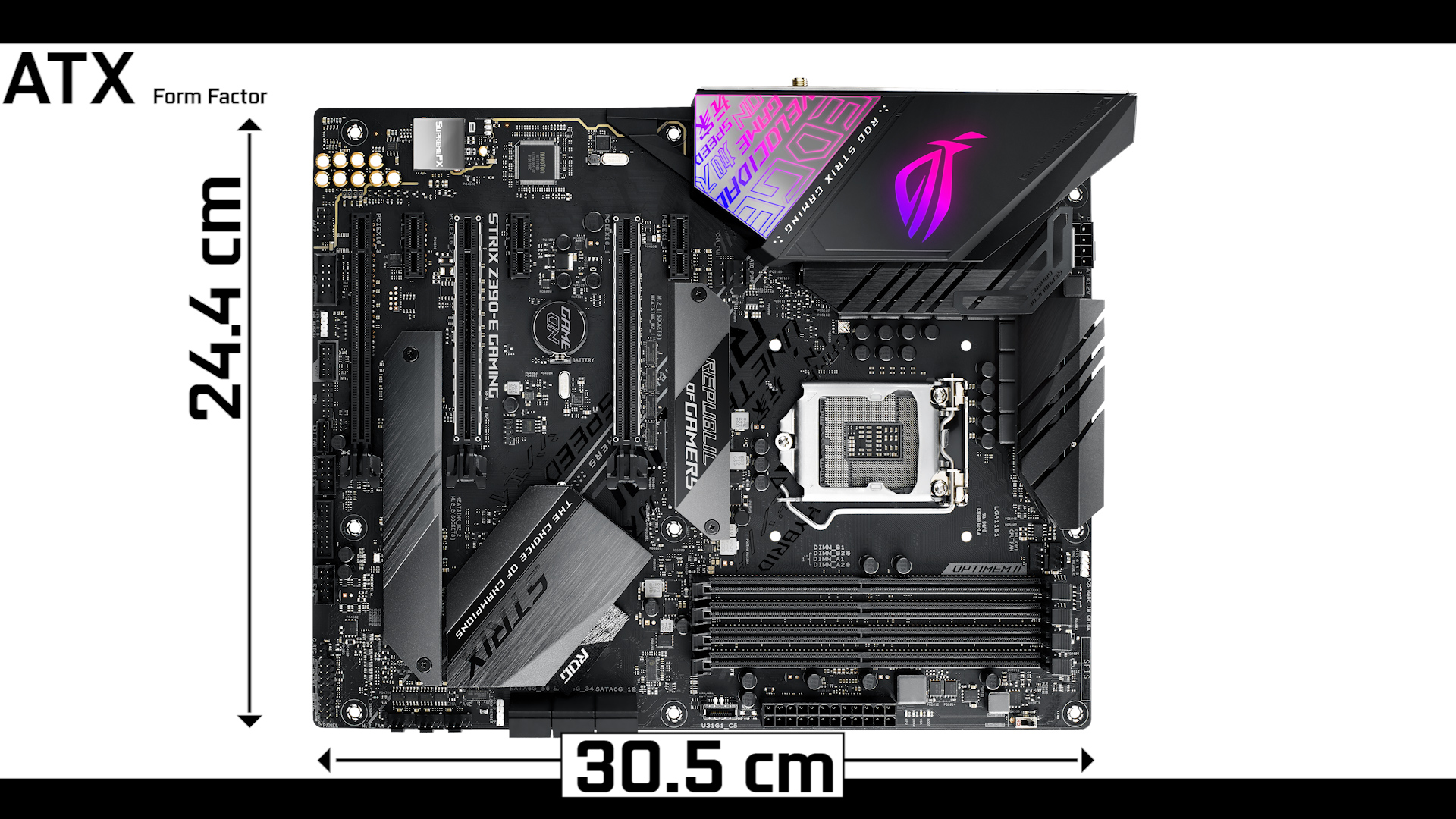
The Z390 chipset
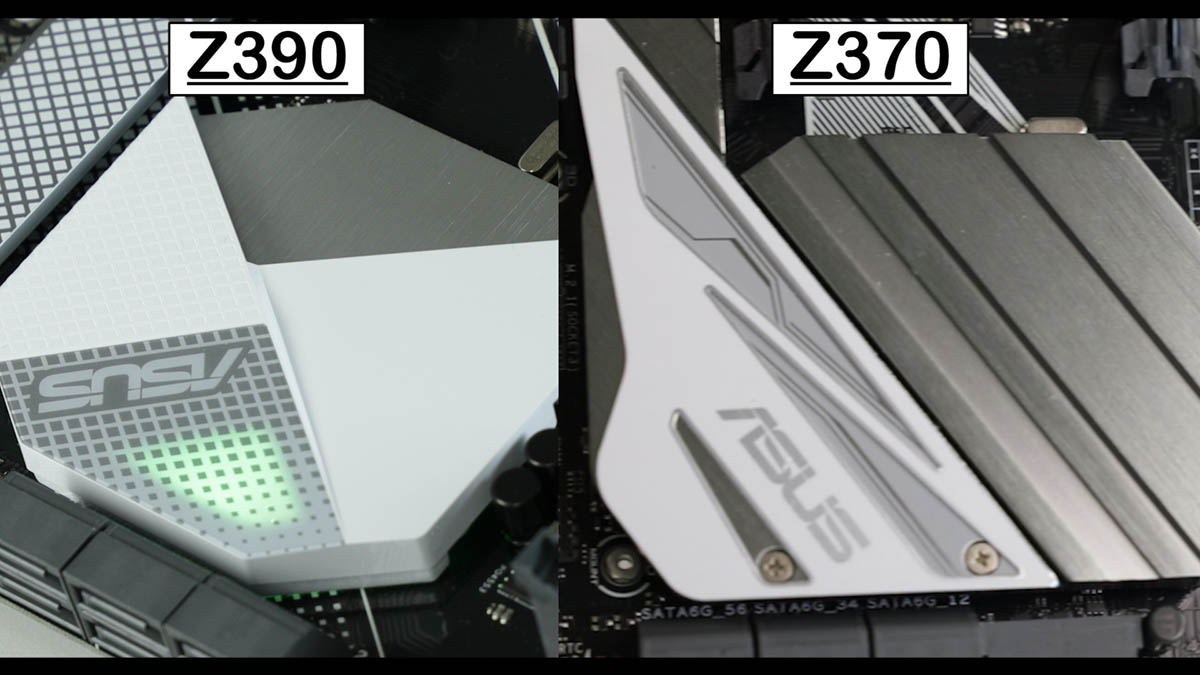
The big difference in this new series is, of course, the chipset: The Z390.
What you need to know here is that the Z390 is in all and for all identical to its predecessor, the Z370. The only noticeable differences are the addition of 2 features (marked in red below) :
Intel Z370 versus Z390 | ||
|---|---|---|
| Intel Chipset | Z390 | Z370 |
| Overclocking Support | Yes | Yes |
| On-CPU PCI Express* 3.0 Configurations | 1X16 or 2X8 or 1×8+2X4 | 1×16 or 2×8 or 1×8+2×4 |
| Independent Display Ports / Pipes Support | 3/3 | 3/3 |
| Memory Channels / DIMMs per Channel | 2/2 | 2/2 |
| Processor Overclocking | Yes | Yes |
| Integrated Intel Wireless-AC Support (CNVi) | Yes | No |
| Intel Optane Memory Support | Yes | Yes |
| Maximum High Speed I/O Lanes | 30? | 30 |
| Maximum USB 3.1 Ports: Gen 2 / Gen 1 | 6 / 10 | 0 / 10 |
| Maximum SATA 6Gb/s Ports | 6 | 6 |
| Maximum PCI Express* 3.0 lanes | 24 (v3.0) | 24 (v3.0) |
| Intel Rapid Storage Technology | Yes | Yes |
| Maximum Intel RST for PCIe Storage Ports (x2 M.2 or x4 M.2) | 3 | 3 |
| Intel RST PCIe RAID 0, 1, 5 | Yes | Yes |
| Intel RST SATA RAID 0, 1, 5, 10 | Yes | Yes |
| Intel RST for CPU-attached Intel PCIe Storage | Yes | Yes |
Other than that, they are the very same chipset, which is a good thing since both the Z370 and Z390 can support the same processors:
- 8th Generation Intel Processors (Coffee Lake)
- 9th Generation Intel Processors (Coffee Lake refresh)
The Board!
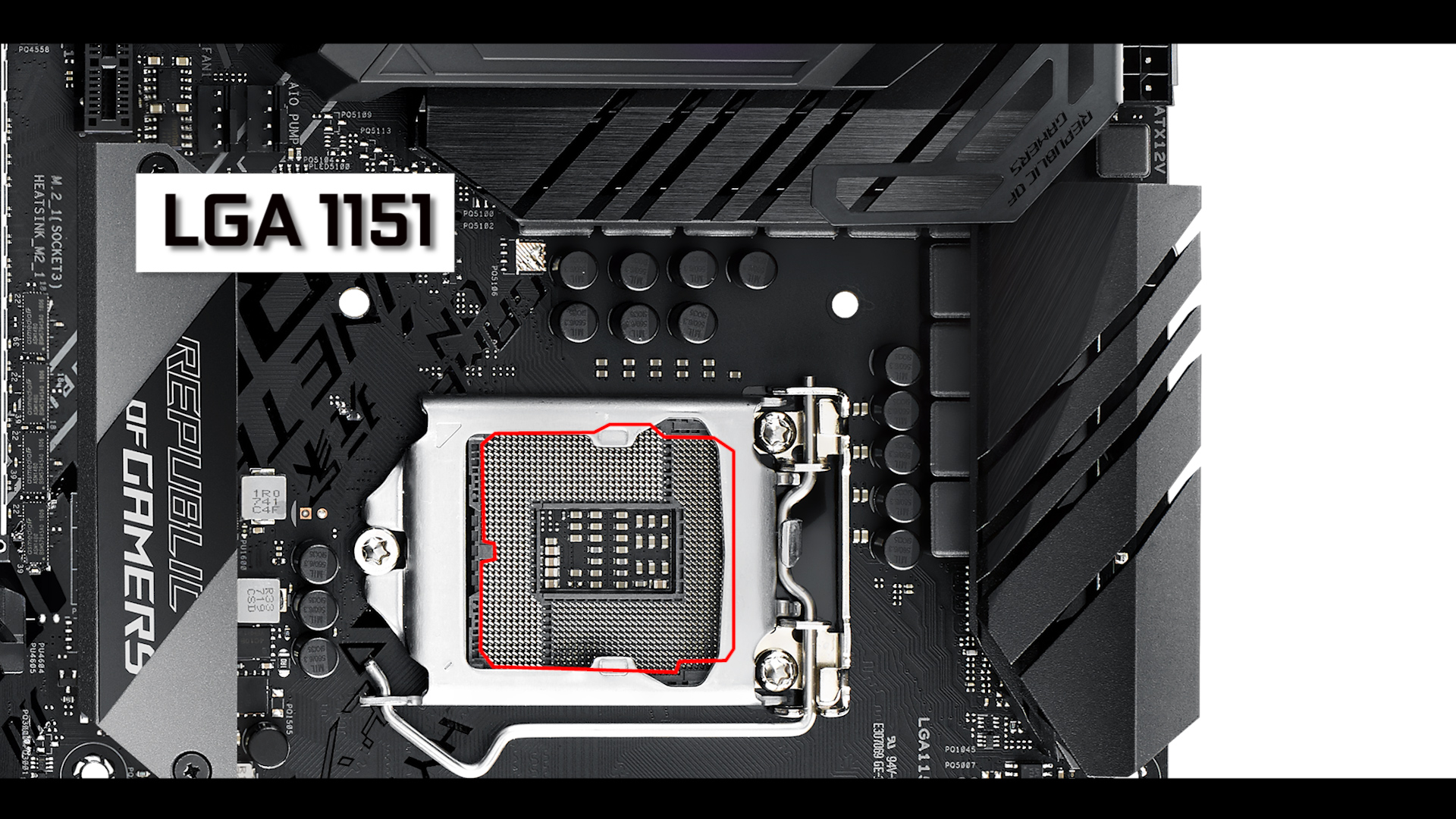
Luckily for all of us, this board still uses the highly compatible 1151 LGA CPU socket. Therefore, if you have installed any Intel CPU in the past decade, you should feel right at home.
And, as previously stated, the CPU socket will support both the 8th and 9th generation of Intel’s Icore CPUs.
VRM
The STRIX Z390-E (as well as any other STRIX Z390s) comes with 8 phases which really are 4 phases in parallel which are a change compared to the ROG Strix z370 8+2 phases. That is explained by the fact that the voltage switch is faster on 4 phases and will better suit an 8 core CPUs.
On the downside, fewer phases mean higher temps on every phase and I could not detect real issues unless of course, you did try to run and OC an i9-9900K. In which case I clearly detected some serious heating coming from the VRMs, even though the heat sinks are definitely beefier than previous STRIX generation.
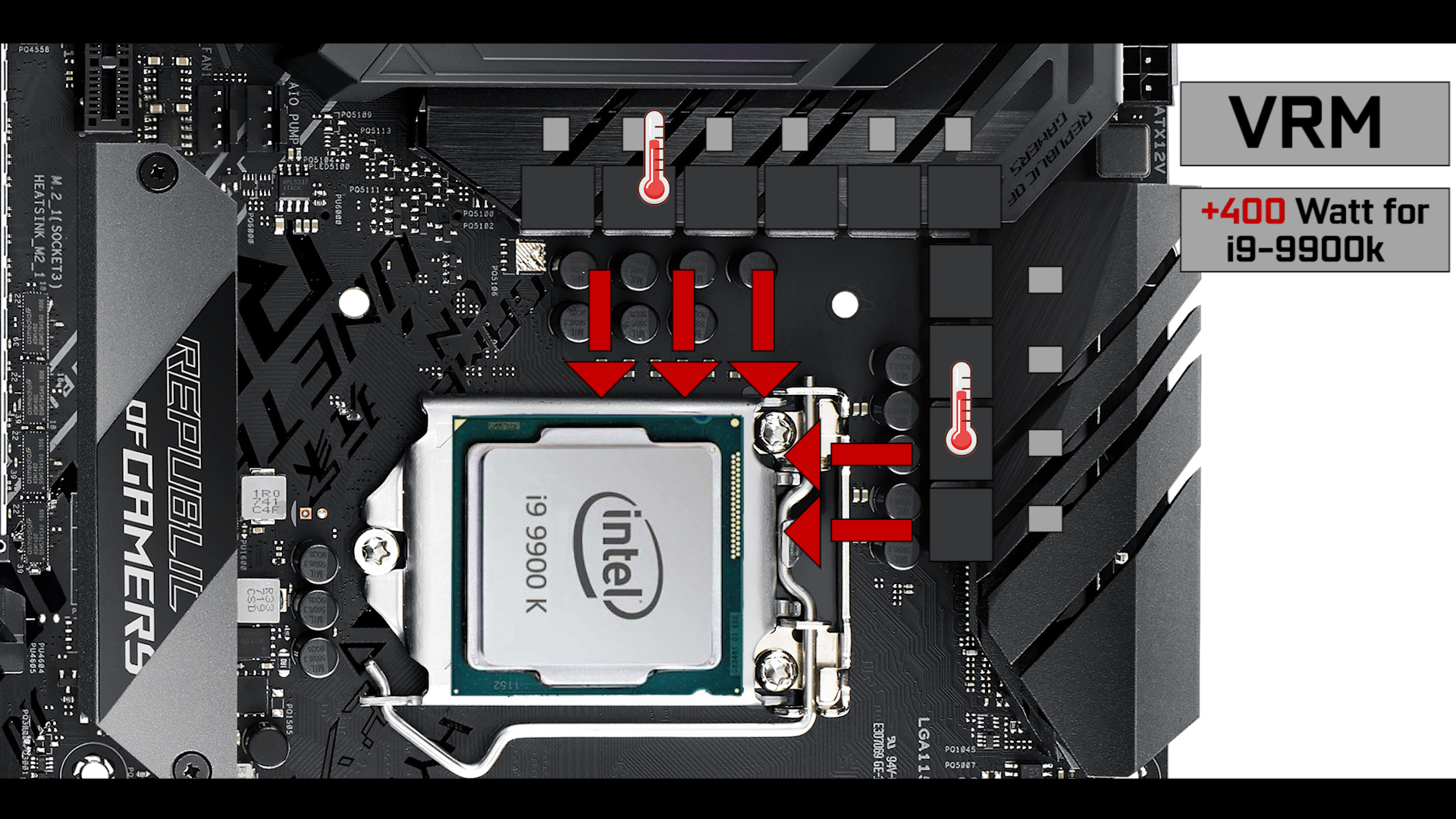
But do not panic, thankfully Asus did provide a fan and fan mount to keep your VRM cool in even the most demanding OC configuration. So kudos to Asus for this.
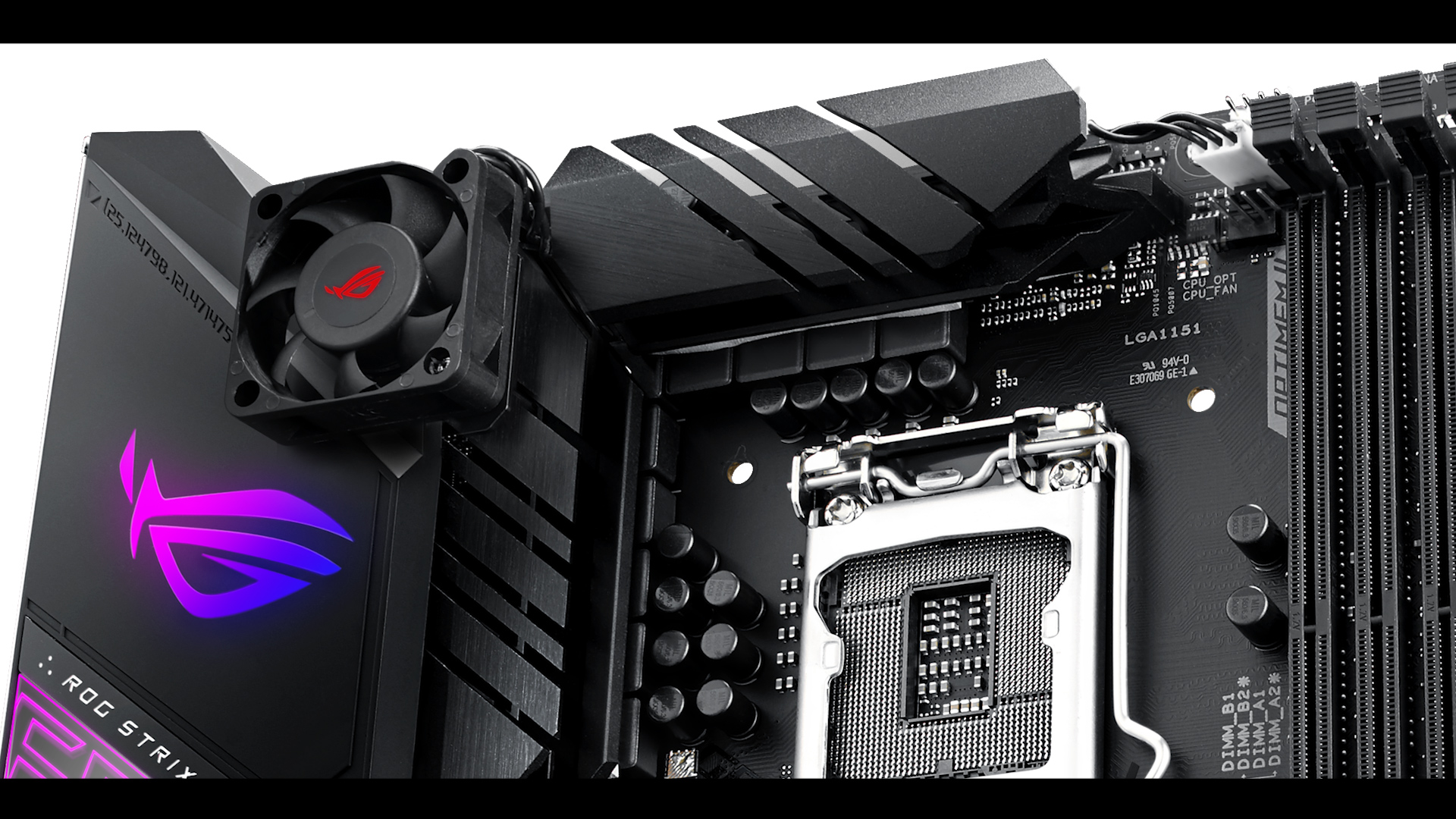
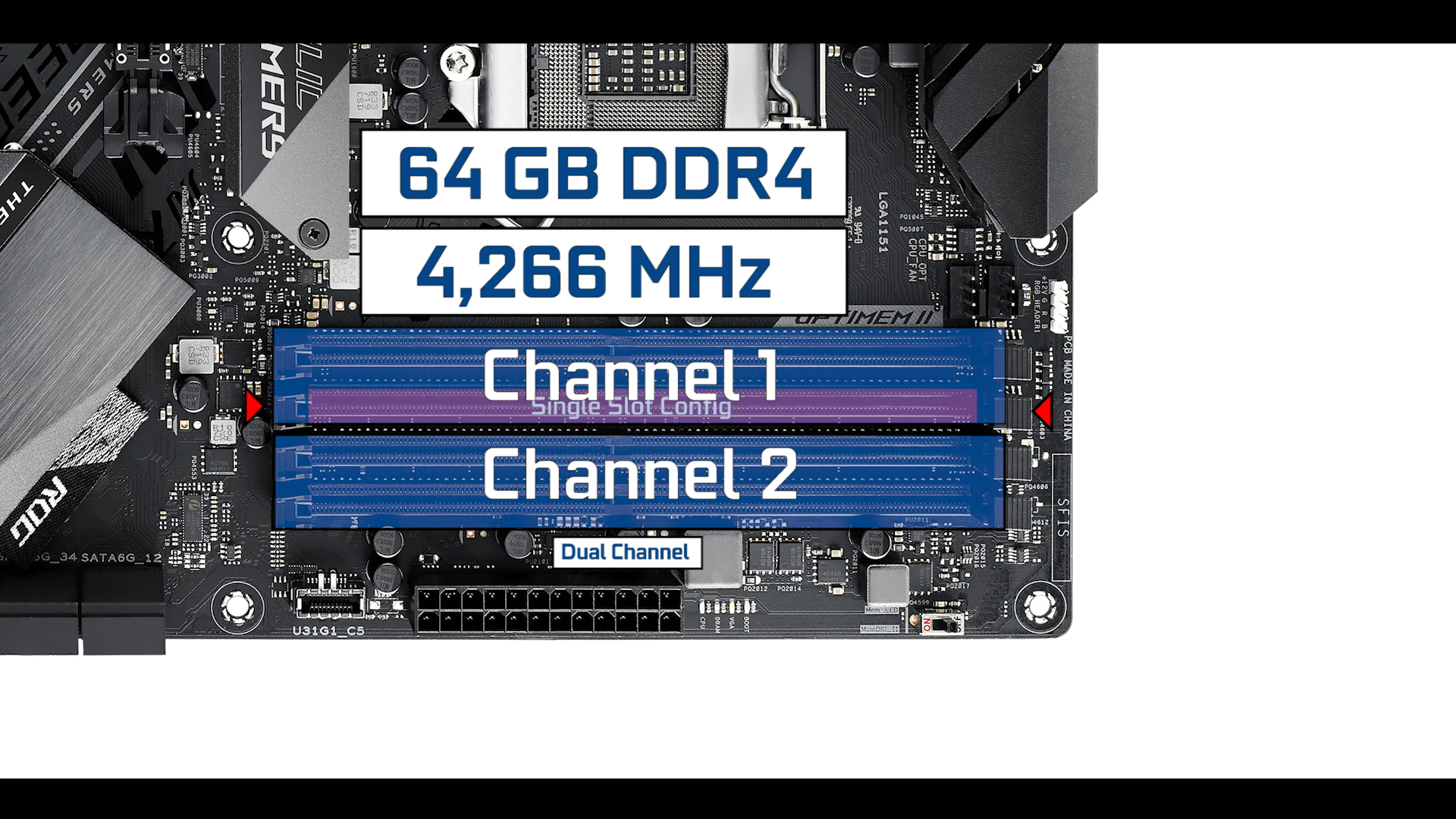
RAM wise, nothing surprising. We have the usual dual channel configuration which can support (for now) up to 64gb of DDR4 RAM, overclockable up to 4,266 GHz. This is 367 MgHZ more than on its predecessor.
I did say for now because word on the street is that this board will, in the future, support up to 128 GB of DDR4 ram, in a 32X4 configuration.
STORAGE
M.2 SSD
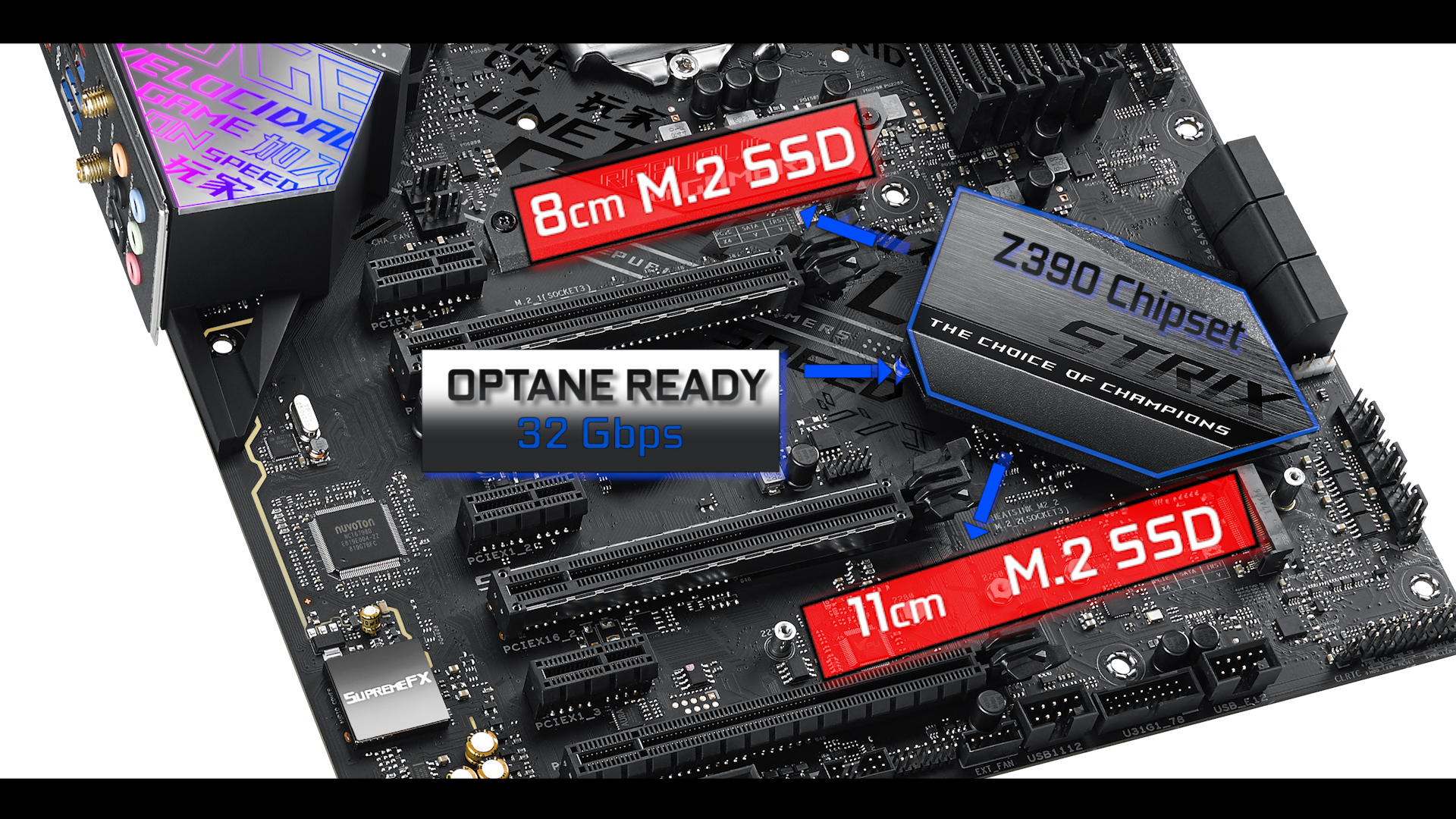
Storage wise, we have a dual M.2 SSD configuration, both of which are equipped with their own individual heat-shield. And of course, the Z390 chipset is Optane ready. This will allow our M.2 SSD sticks to swap data up to 32 Gbps.
With this kind of theoretical transfers, do not be surprised to see your M.2 SSDs sticks overheating, and thermo-throttling. Worried about that, Asus has equipped the back of its only M.2SS heatsinks with a thermo-pads. Always a welcome move.
SATA 3.0
Asus ROG STRIX Z390-E SATA connectors
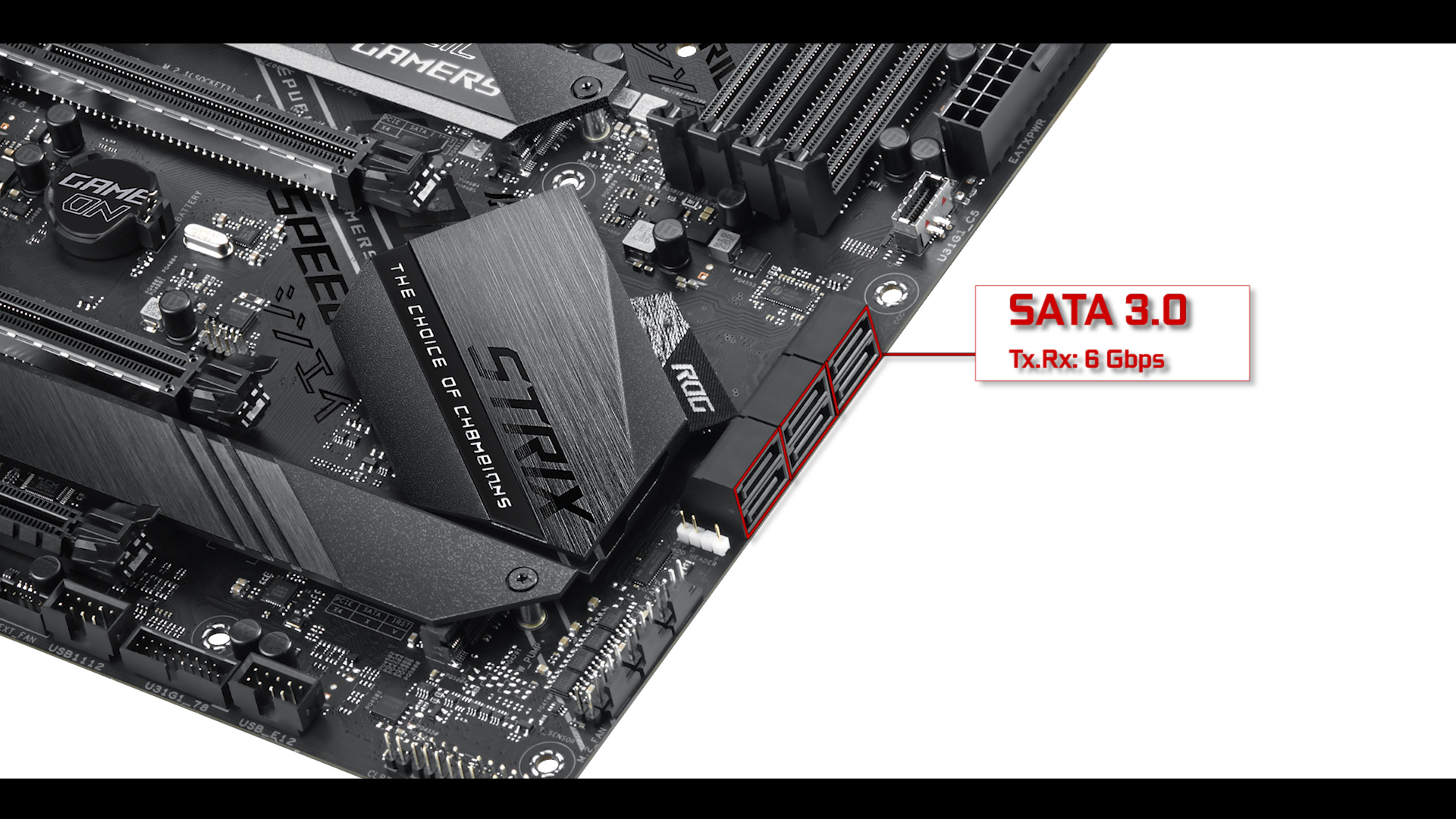
For more classical storage solutions, we have our usual SATA 3.0 plugs. 6 in total, with a transfer rate of 6 Gbps each.
PCIe Lanes
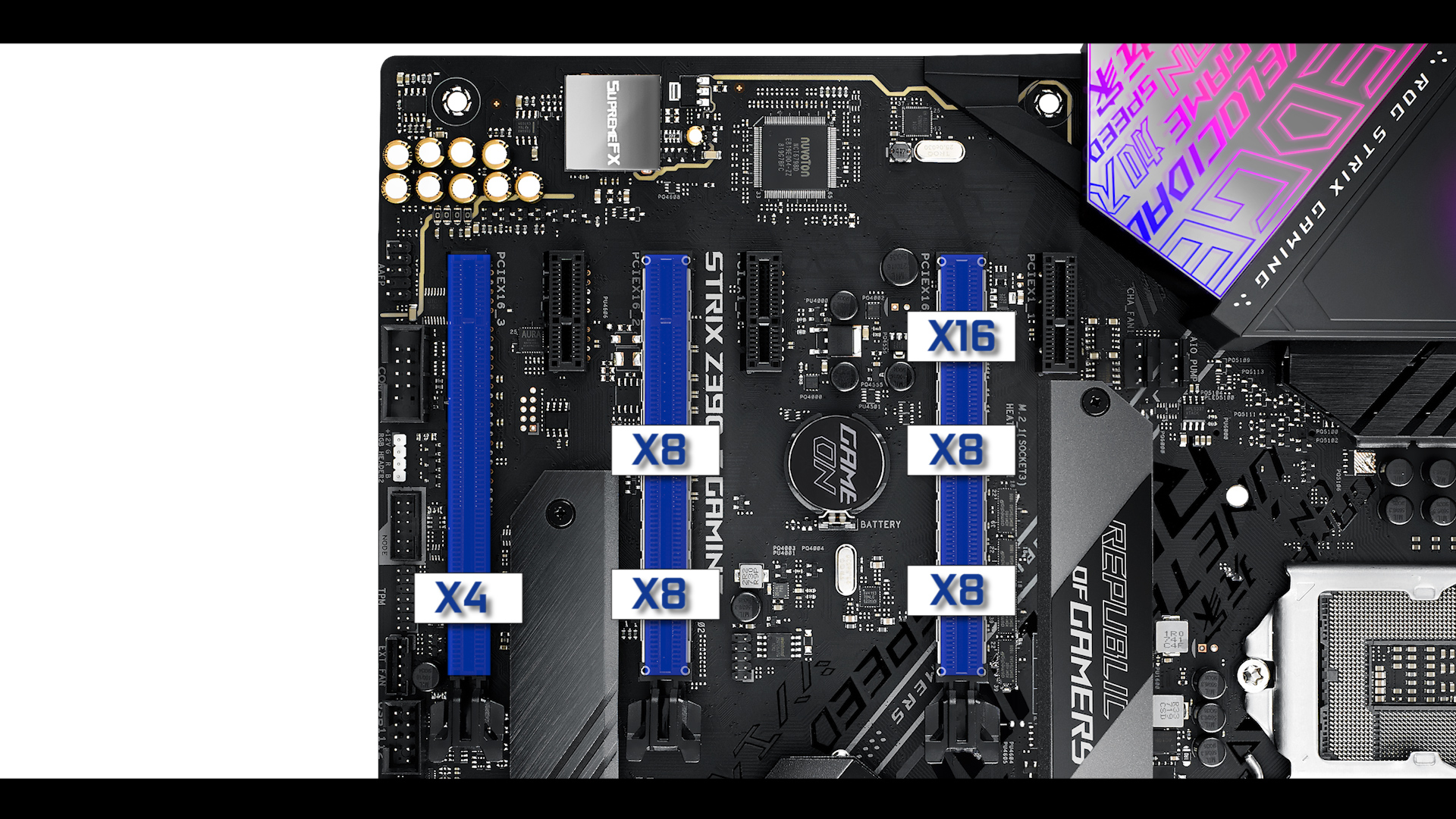
PCIe wise, we are keeping the same lane configuration seen in the previous 3 generations of boards: 24 lanes 3.0 PCIe which can accommodate different configurations depending on needs.
Note that this board is designed for up to a dual GPU configuration. Anything above and beyond is pointless since the last 16 slot PCIe can only serve up to X2 BUS speed or X4 shared with its SATA 5 and SATA 6 plugs.
IO and Connectors
First, let me note that we have an integrated I/O shield. Which is ALWAYS a good start.
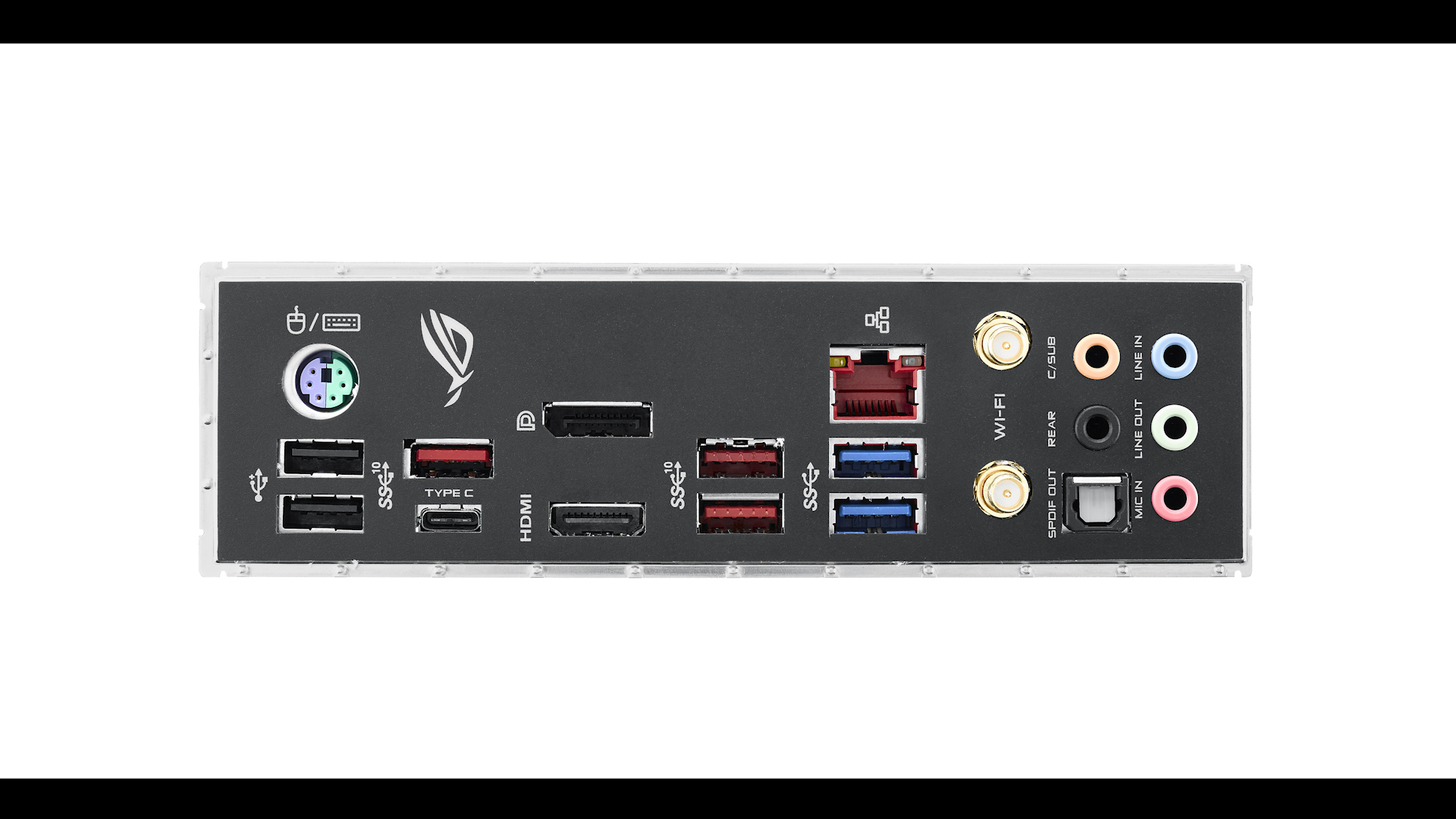
Starting from the left, we have :
- PS/2 keyboard/mouse connector
- x2 USB 2.0 RX/TX 480 Mbps
- x4 USB 3.1 2nd Gen. ( 3 type A + 1 Type C) RX/TX 10 Gbps
- x2 Display output : 1 HDM 1.4B + DisplayPort 1.2
- x1 l219-V Gigabit Lan
- 2×2 Mu-MiMo WiFi 802.11ac
- Realtek S1220a 8 channel HD Crystal Sound 3
2×2 MU-MIMO WiFi
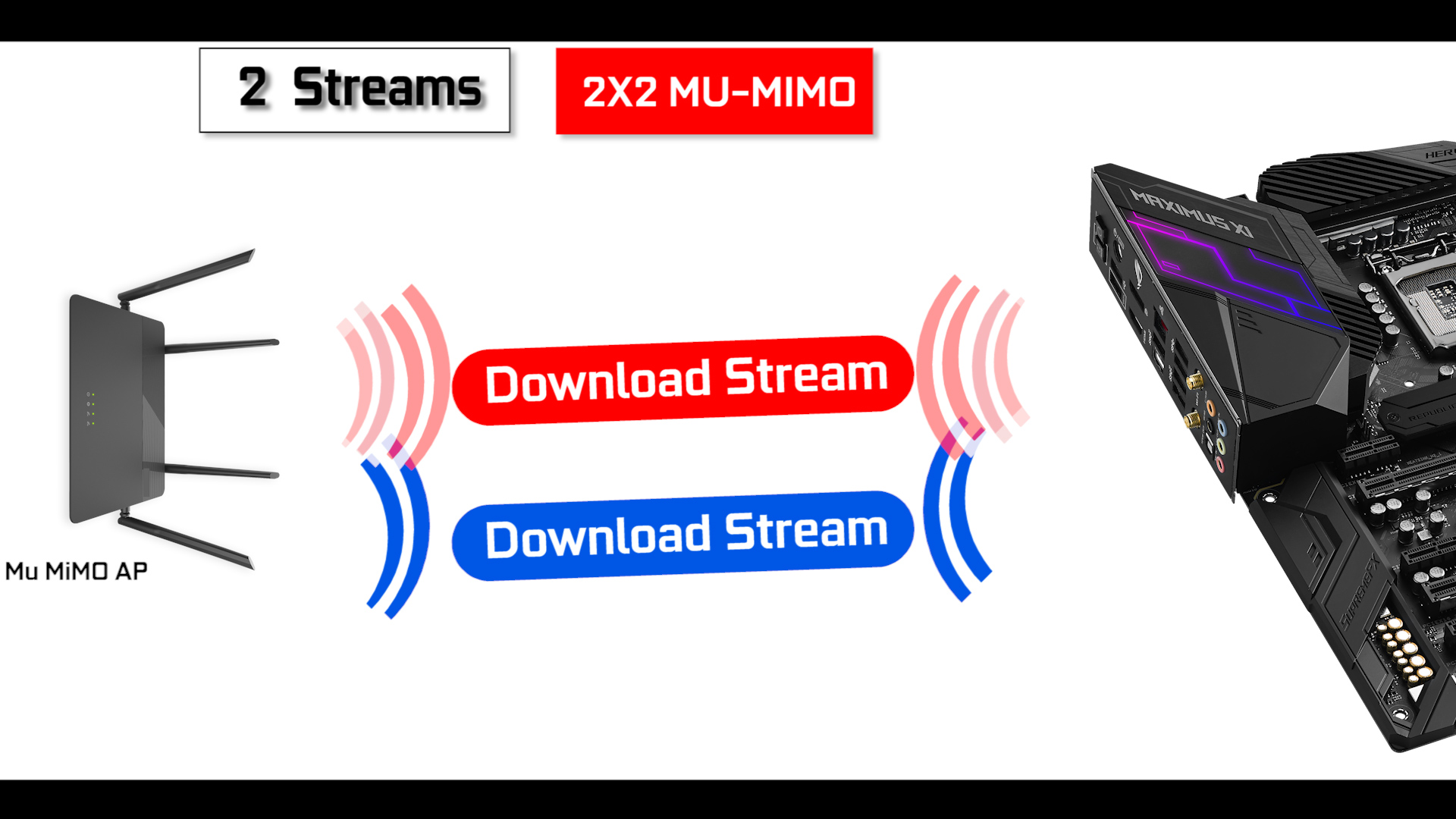
The new 2×2 MU-MIMO WiFi standard operates multiple download streams (when used and paired with an MU MIMO router), resulting in a better coverage and more dedicated signal for each of your MU-MIMO devices.
On the ROG STRIX Z390-E, we can hope for WiFi speeds up to 1.7 Gbps, or that’s what Intel claims. I did not manage to go beyond 1.1 Gbps myself.
Front Panel connectors
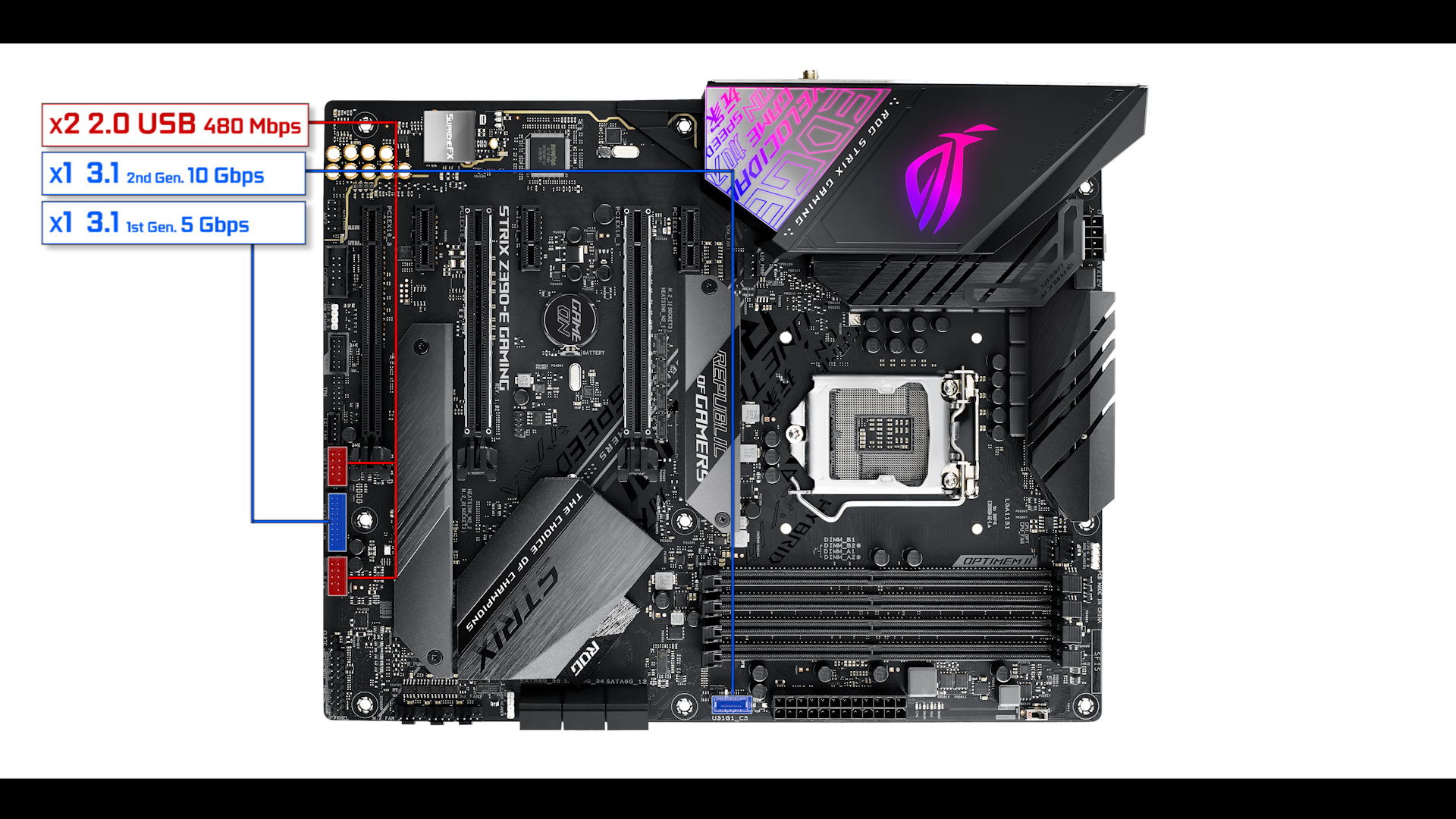
As for front panel connectors goes, this is where the Z390 shines.
We have 1 USB 3.1 2nd gen type C front panel connector as well as a USB 3.1 1st gen type A (classical) front panel connector.
In addition, we have 2 USB 2.0 front panel connectors. Worth noting, these are not only relevant for data transfer, but they are also very useful for All-In-One water pumps energy supply and PWM abilities, or for Intelligent PSUs for in and out wattage readout / monitoring.
Fan & Pump Connectors
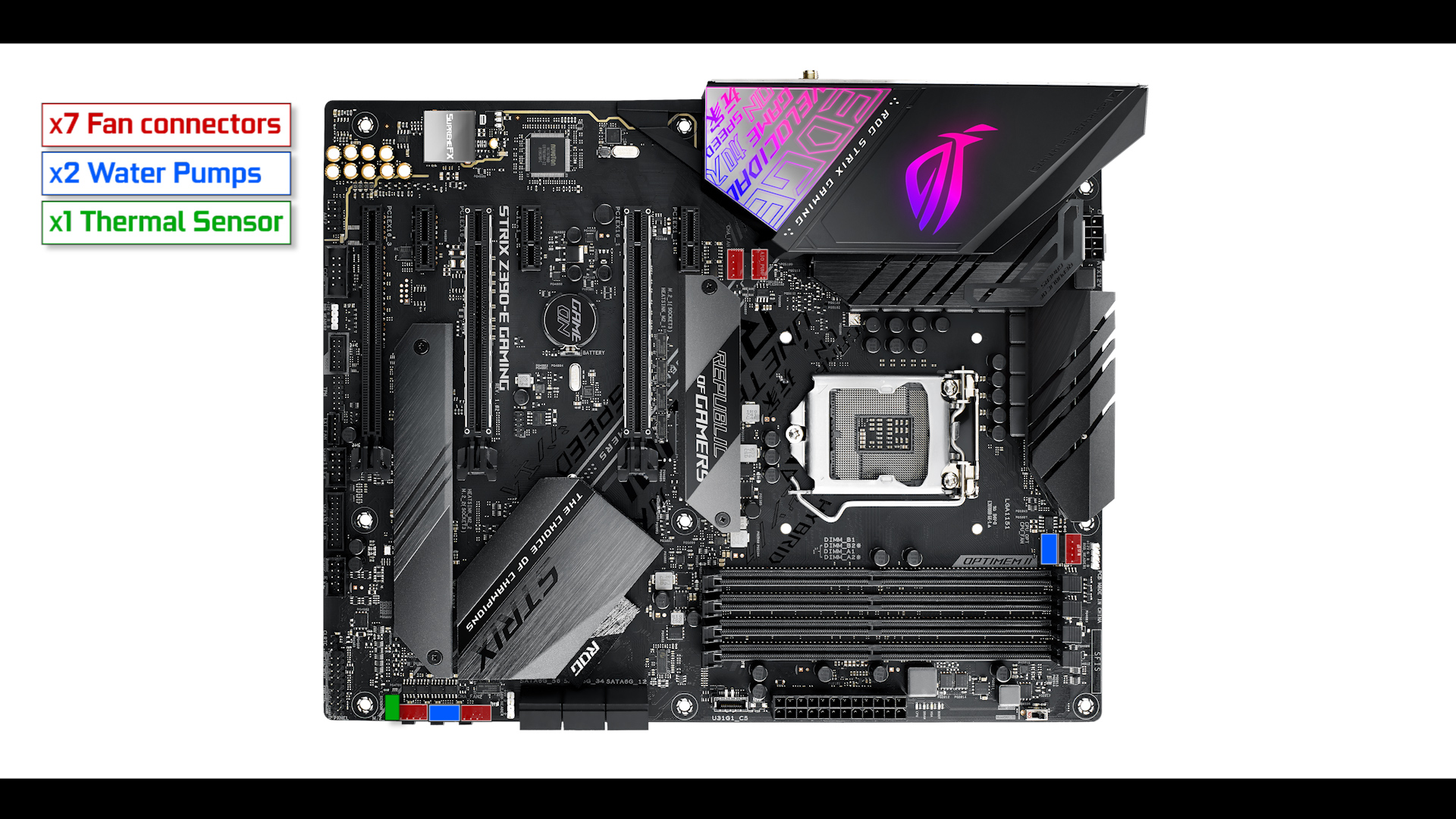
The STRIX series mainly cares for heavy gamers on a budget with somewhat of an enthusiastic bone to them, and the STRIX edition is packed with enthusiastic goodies!
We have 7 native PWM fan connectors, 2 of which can be used for your water pumps. If that is not enough, you can also add 4 additional fans through a fan extension.
We also have an external thermos sensor in addition of the built-in ones.
In short, the ROG STRIX Z390-E can deliver on the most extreme performances, supporting single or dual loop custom water cooling configurations.
AURA
Asus prides itself for being at the forefront of the RGB craze, and it tries hard to keep that edge on every board iteration it releases.
The ROG STRIX Z390-E does not only feature a packed and robust board, but it is a good looking one. It comes equipped with a native RGB strip:
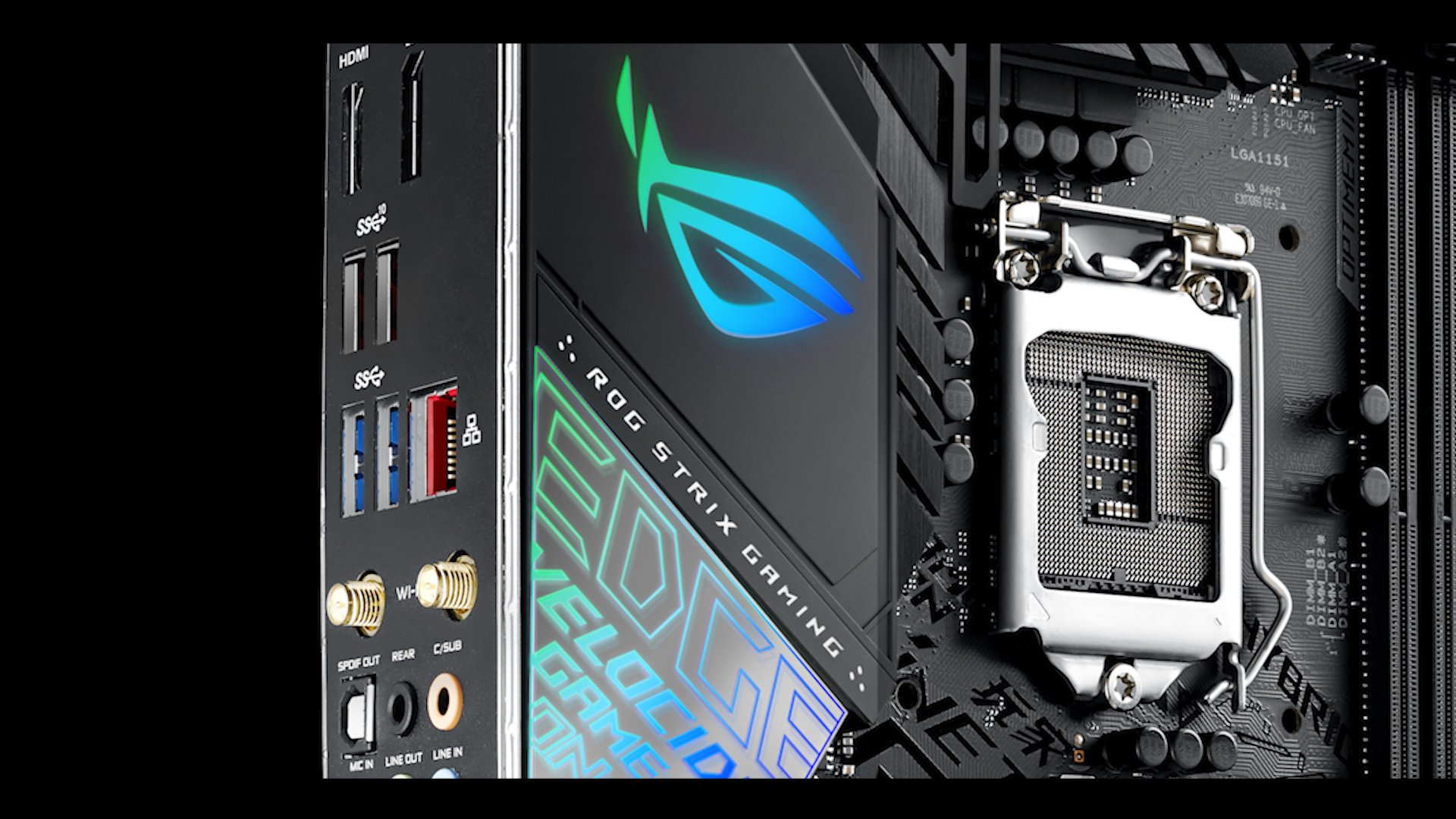
Under the IO house.
But if that is not enough, you can add up to 4 additional RGB strips!
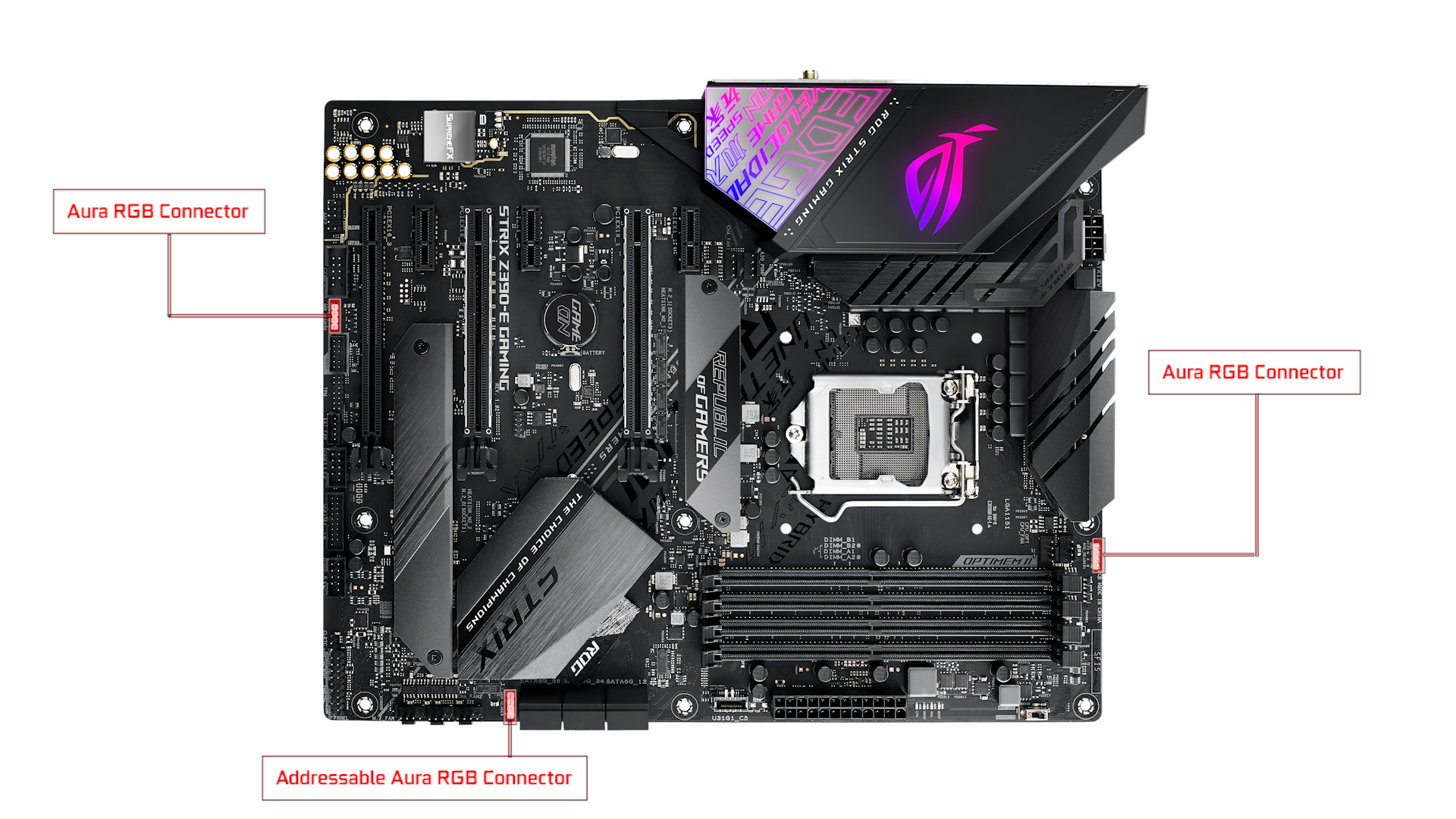
Two RGB connectors And 1 Addressable RGB connectors, allowing you to custom colour your build to a single LED precision!
CONCLUSION
The STRIX series is not known for coming cheap and at 240 USD before taxes, the ROG STRIX Z390-E is significantly more expensive than the Prime Z390-A, the entry model of Asus’s Z390 motherboard. And the fact its predecessor, the ROG STRIX Z370-E supports the same range of Processors does not help.
But, the STRIX Z390-E comes with a more robust and performant minded design. We have beefed up VRMs, larger heat-sinks, and upgraded peripherals (more 2nd gen 3.1 USBs and an MU MIMO WiFi adapter).
I will note that, even though we have better VRMs (and a lot can be said about them), when faced with the i9-9900K, overheating and thermo throttling is a plague you need to battle against, but the VRM fan supplied by Asus is definitely a great help and does seem to keep serious thermo-throttling from occurring . Keep in mind that the over-heating (without fan) was only observed when using the 8 core i9-9900K, a rare CPU and expensive CPU. All other 8th and 9th Gen Intel CPU worked flawlessly, even with the most extreme Overclocking configurations.
The overall design is nothing short of gorgeous and shows some real improvement compared to its Z370 predecessor. The board is definitely premium built and made to last.
I am sad not to see a Q-code screen or more soldered button onto the board itself. But these last 2 remarks are no deal breaker, and the ROG STRIX Z390-E, is an absolutely wonderful board to build and operate with.
QUICK OVERVIEW
CPU & northbridge support
Memory
Connectors

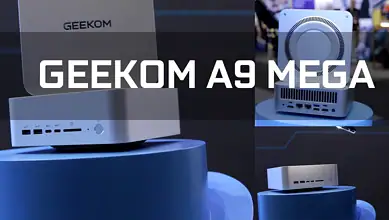
One Comment